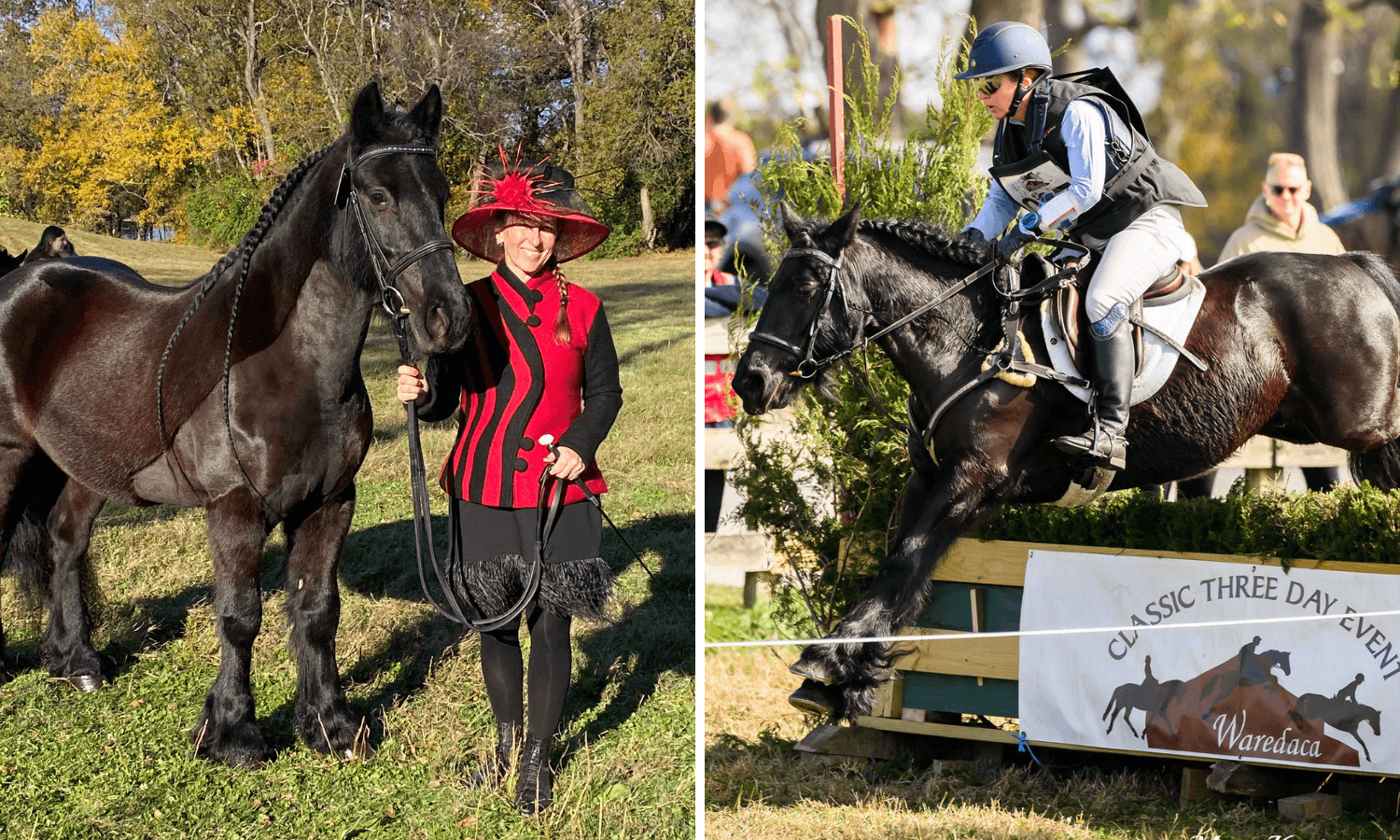Winning Takes More Than Hard Work
This is a sponsored post, supported by a partnership between the United States Eventing Association (USEA) and Merial.
Sometimes, having the right combination of hard work and dedication isn’t enough when it comes to winning at an equestrian sport. In this video, Julie Wolfert, international eventer and trainer, talks about how ULCERGARD® (omeprazole) and GASTROGARD® (omeprazole) are contributing factors to her program’s success. She expresses the concern every horse owner faces ― if your horse doesn’t feel well, they’re not going to compete well.
Horses stressed from competition can develop stomach ulcers.1 Horses can also become stressed from everyday situations like trailering1 or a change in routine2 or environment.3 After the full treatment of GASTROGARD, the only proven and FDA- approved product for the treatment of equine stomach ulcers,4 Julie Wolfert’s horse went from being unable to ride to winning at a national level. Wolfert believes in GASTROGARD because she’s seen the product work.
If your horse displays any signs of ulcers such as poor performance,1 decreased appetite,1 recurrent diarrhea1 or poor hair coat,1 contact your veterinarian. Also, know that horses suffering from equine stomach ulcers may not always exhibit apparent clinical signs. Your veterinarian may recommend a gastroscopy, which is the only way to definitively diagnose equine stomach ulcers.3 Help prevent equine stomach ulcers by administering ULCERGARD, the only proven and FDA-approved product to prevent stomach ulcers,1 and watch the video to see how ULCERGARD has helped Julie Wolfert.
IMPORTANT SAFETY INFORMATION:
ULCERGARD can be used in horses that weigh at least 600 pounds. Safety in pregnant mares has not been determined.
Caution: Safety of GASTROGARD in pregnant or lactating mares has not been determined.
®ULCERGARD and GASTROGARD are registered trademarks of Merial. ©2016 Merial, Inc., Duluth, GA. All rights reserved. EQUIUGD1617 (03/16)
1 ULCERGARD® (omeprazole) product label.
2 McClure SR, et al. Gastric ulcer development in horses in a simulated show or
training environment. JAVMA. 2005;227(5):775-777.
3AAEP Equine Gastric Ulcers: Special Care and Nutrition. 4 GASTROGARD product label.
5 Equine Gastric Ulcer Council. Recommendations for the diagnosis and treatment of
Equine Gastric Ulcer Syndrome (EGUS). Equine Vet Educ.1999;11:262-272.















